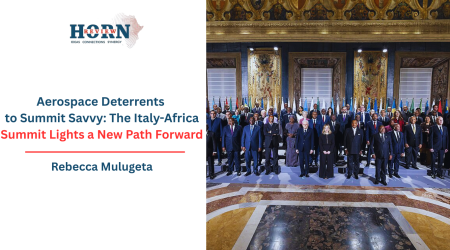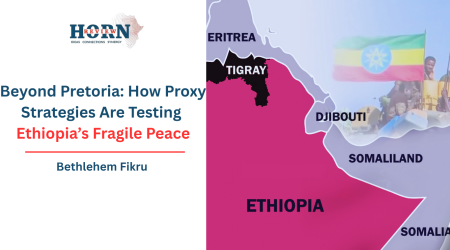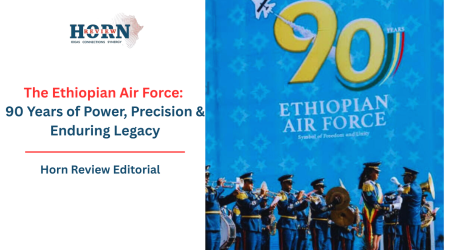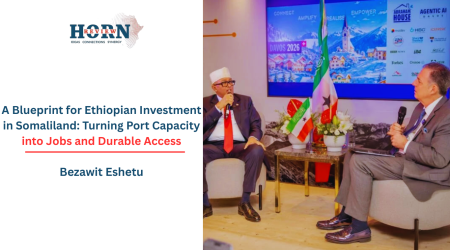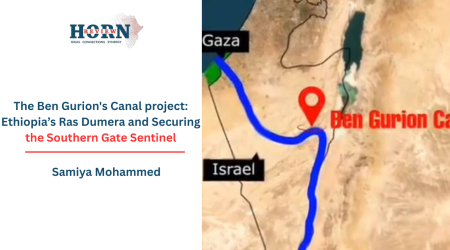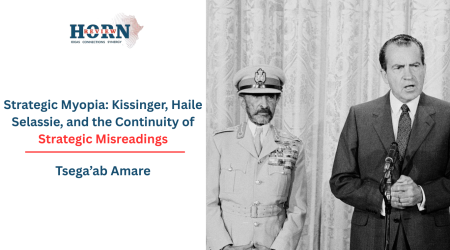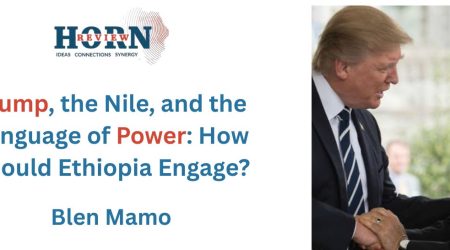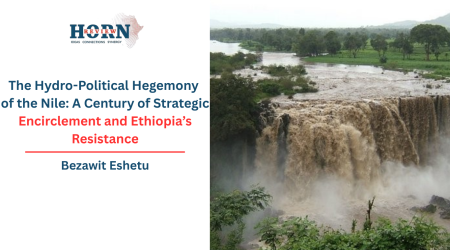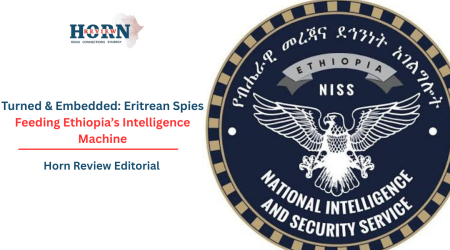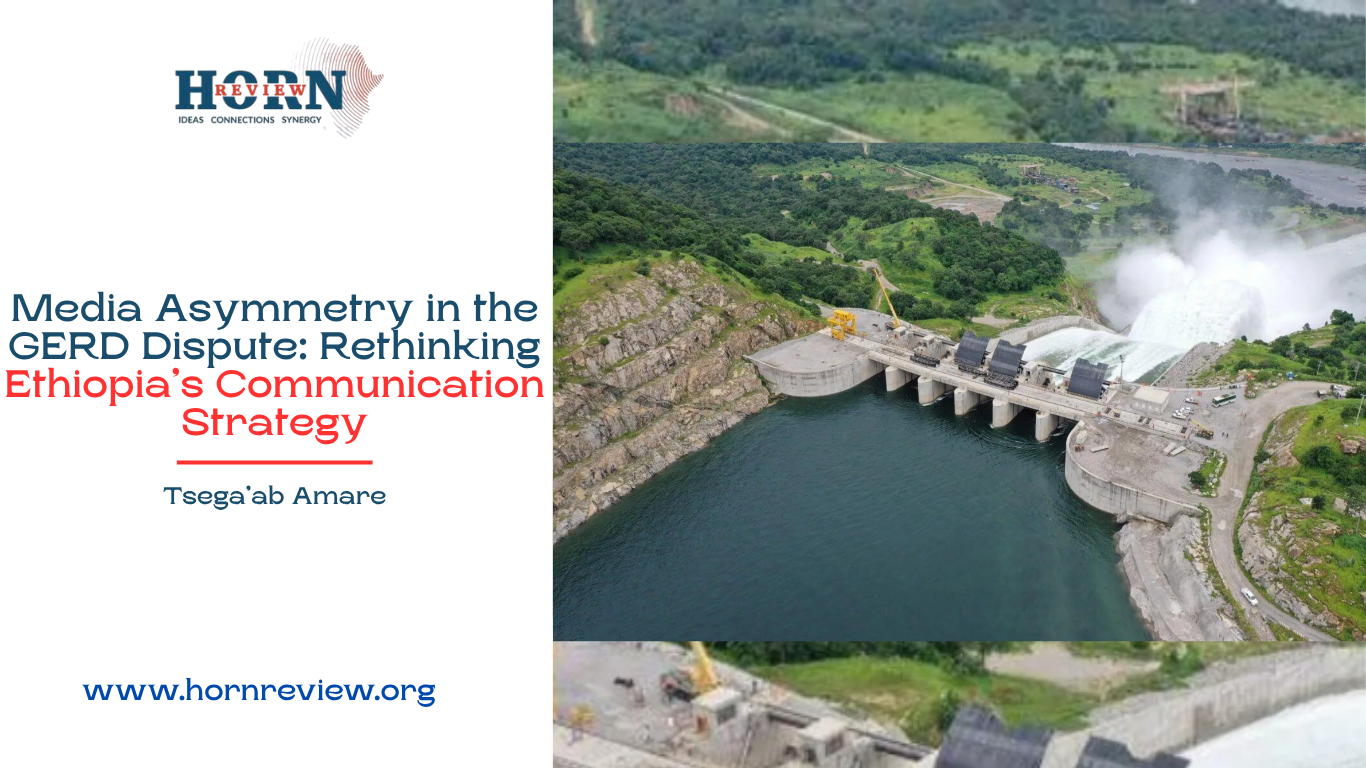
11
Oct
Media Asymmetry in the GERD Dispute: Rethinking Ethiopia’s Communication Strategy
The Grand Ethiopian Renaissance Dam (GERD) has long transcended its physical structure on the Blue Nile. It is at once a hydro-political project, a developmental lifeline, and a global stage for competing narratives. Yet, beyond the technical negotiations and diplomatic communiqués, the GERD has long been a test of information power.
For over a decade, Egypt has effectively leveraged media diplomacy to amplify its concerns, ensuring that its framing of the GERD as an “existential threat” dominates global headlines. By contrast, Ethiopia’s responses, although grounded in legality, equity, and development, often remain buried in technical briefs or domestic outlets with limited global reach. This imbalance has left Ethiopia substantively strong but communicatively weak.
To safeguard its interests, Ethiopia must rethink its international communication strategy, matching the power of its technical case with equally forceful, proactive, and emotionally resonant narratives.
Egypt’s Playbook: Diplomacy and Media in Sync
Egypt has mastered the synchronization of diplomacy and media outreach. Its official démarches are routinely reinforced by an assertive media outreach that ensures its position sets the global frame before Ethiopia can react.
June 2020: Cairo submitted a letter to the UNSC warning that GERD posed an “existential threat.” At a virtual UNSC meeting on the next day, Egypt’s then-Foreign Minister Sameh Shoukry reinforced this warning, stating that conflict could ensue if the UN fails to intervene, and later appeared in international press briefings and interviews, generating coverage by Al Jazeera, amplifying the “existential threat” narrative.
July 2021: As Ethiopia announced the second filling of the GERD, Egypt quickly submitted a complaint to the UNSC, escalating the issue. The then-Foreign Minister Sameh Shoukry delivered a speech urging the Council to intervene and support Egypt’s efforts, including a draft resolution presented by Tunisia. The diplomatic push was amplified by multilingual Ministry of Foreign Affairs statements, rapid social media engagement, and think tank op-eds and reports, reaching both Western and Arab audiences even before Ethiopia had issued a response.
September 2025: During Ethiopia’s inauguration of GERD, marking a major milestone in its energy development, Egypt quickly submitted a letter to the United Nations Security Council (UNSC) and launched a media campaign portraying the project as a potential challenge to regional cooperation and the shared interests of Nile Basin states. Ethiopia’s official response to the UNSC, submitted the same day, emphasized the GERD as a “generational aspiration fulfilled” and Ethiopia’s desires of equitable water use and a fair right to development. However, the response was reported days later and received close to no international coverage, highlighting a gap in Ethiopia’s communication strategy compared to Egypt’s coordinated media push.
This displays a consistent pattern where the effect is cumulative: by the time Ethiopia’s statements reach the global stage, Egypt’s version, which ties GERD to its existential security, has already become the default frame, placing Ethiopia in a reactive position in a game it cannot afford to lose.
Ethiopia’s Blind Spot: Strong Case, Weak Communication
Ethiopia enters the dispute with powerful arguments anchored in international law and development imperatives: equitable and reasonable utilization, respect for the African Union-led framework grounded in international water law and the UN Convention on the Law of the Non-Navigational Uses of International Watercourses (1997), and the undeniable developmental urgency of electrifying a country where around 60 million people still lack access to electricity. Substantively, Ethiopia stands on firm legal and developmental ground. Yet its communication strategy has consistently lagged behind, failing to project its case with equal vigor on the international stage.
The September 9, 2025, response to Egypt’s latest complaint at the United Nations Security Council illustrates this challenge. Ethiopia submitted a carefully reasoned letter reaffirming its commitment to equitable water use and underscoring the GERD’s role in regional cooperation and development. However, unlike Egypt’s parallel complaint, which was accompanied by an immediate press campaign and extensive media coverage, Ethiopia’s response barely registered in global headlines. The statement circulated through domestic outlets such as The Reporter Ethiopia and Addis Standard, with no engagement from international newswires.
Framing the GERD: Lessons from Global Dam Politics
Egypt has consistently framed the GERD as an existential threat, while Ethiopia has relied on legal and technical arguments of “equitable and reasonable utilization.” This limits the project’s narrative impact. In reality, the GERD is Africa’s largest hydropower facility that is capable of electrifying millions, spurring industrialization, reducing fuel imports, and advancing the AU’s Agenda 2063. Properly framed, it is not just national infrastructure but a continental symbol of energy justice, development, and climate responsibility.
Comparative experience underscores why framing matters. China’s Mekong dams, criticized for a lack of transparency, heightened distrust among downstream states. Turkey’s Southeastern Anatolia Project (GAP) dams became securitized in Syria and Iraq, partly due to Ankara’s unilateral framing. Brazil’s Belo Monte and other Amazon dams provoked sustained international opposition, amplified by global climate and indigenous rights narratives. These cases show that infrastructure projects do not exist in a vacuum, however how they are narrated shapes legitimacy, acceptance, and external alliances.
Rethinking Ethiopia’s Communication Strategy
To close the gap, Ethiopia must elevate communications to the level of strategy, not afterthought. Five opportunities stand out:
- Proactive Synchronization
Ethiopia should adopt a proactive approach in coordinating its communications on disputes. Every diplomatic submission to the UN Security Council or the African Union should be accompanied by a same-day press release, high-level spokesperson briefing, and targeted outreach to global media outlets. To ensure immediate international coverage, the Ministry of Foreign Affairs (MFA) could establish press pools with major agencies such as Reuters, AFP, and AP. Timing is critical: Ethiopia’s narrative must reach the headlines simultaneously with official communications rather than appearing belatedly.
- Reframe Messages with Emotional and Universal Appeal
Messaging should emphasize the human and societal impact of Ethiopia’s initiatives, showing how policies, projects, or programs improve everyday life; whether it’s access to education, healthcare, energy, or economic opportunity. Communications should also connect Ethiopia’s actions to broader, universal values such as climate justice, sustainable development, human rights, and regional cooperation. By combining factual or legal arguments with moral and ethical authority, Ethiopia can consistently present itself as a responsible, forward-looking leader and a model for equitable growth and development.
- Digital Public Diplomacy
Social media and diaspora influencers should be leveraged to bypass traditional media gatekeepers, while targeted engagement with African and global youth communities can amplify narratives around development and climate action. This approach allows Ethiopia to reach audiences that may not be fully covered by conventional international media channels.
- Coalition Building for Narrative Amplification
Ethiopia can encourage AU Commission leaders, African development banks, and non-aligned states to echo its framing in media interventions. Partnerships with climate and development think tanks can facilitate the publication of supportive op-eds in international outlets. By strategically coordinating these voices, Ethiopia can create an “echo chamber” similar to the one Egypt has cultivated through the Arab League and Western alignment.
- Institutionalize Strategic Communications
A dedicated Strategic Communications Unit within the MFA would professionalize international media outreach. Ambassadors and senior diplomats should be trained as media spokespersons, ensuring that every embassy functions as a communication hub capable of consistently amplifying Ethiopia’s narrative.
Conclusion
Ethiopia’s experience with the GERD dispute illustrates a broader truth: substantive strength alone is insufficient without strategic, coordinated, and compelling communication. Across issues, whether infrastructure, development, climate initiatives, or regional diplomacy, Ethiopia must move from a reactive posture to one of proactive narrative leadership. Effective communication requires synchronization between diplomatic actions and media outreach, the ability to frame messages with emotional and universal appeal, engagement with digital audiences, and coalition-building to amplify its perspectives.
Institutionalizing strategic communications within the Ministry of Foreign Affairs and equipping diplomats as media-savvy spokespersons will ensure that Ethiopia’s positions are consistently visible, credible, and persuasive on the international stage. By adopting such a strategy, Ethiopia can elevate its voice in global debates, shape perceptions before others dominate the narrative, and project itself as a responsible, forward-looking leader across multiple domains.
GERD demonstrates the stakes of narrative imbalance, but the lessons extend far beyond one project: Ethiopia’s long-term influence in international affairs will depend as much on how it communicates as on the strength of its policies.
By Tsega’ab Amare, Researcher, Horn Review

